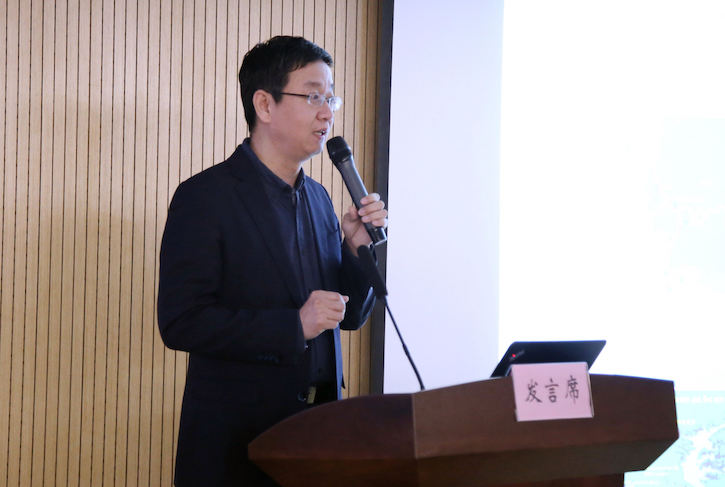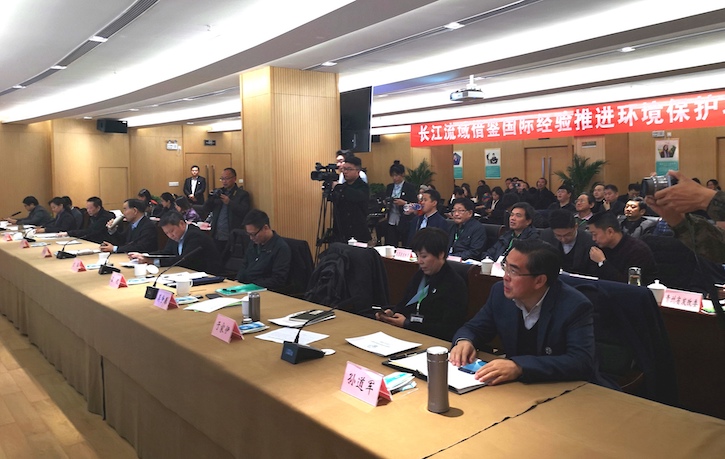
Preventing water and soil pollution while fostering economic development is a challenge faced by many local governments around the world. However, it is of particular concern along China’s Yangtze River, which is home to 40 percent of the country’s population and accounts for over 40 percent of GDP.
But a group of international experts and government officials are seeking to tackle that challenge.
Paulson Institute and the Resources Conservation and Environmental Protection Division under China’s National Development and Reform Commission (NDRC), hosted a workshop in Hubei province on December 7 bringing together nearly 100 representatives from various agencies and institutions to exchange best practices and research findings on managing pollution and growing the economy along the Yangtze River basin. China’s central government has recently prioritized the integration of environmental protection and economic development in this region.

The workshop was a culmination of a collaboration that PI and NDRC began earlier this year. Dr. Kevin Mo, Managing Director of the Paulson Institute Beijing Office, introduced this year’s research findings, which looked at experiences and best practices along the Mississippi, Rhine, and Danube rivers; the Great Lakes between Canada and the United States; and the Chesapeake Bay. Mo described in detail eight international best practices in promoting economic development along with pollution prevention and control, urging attendees to consider how to incorporate these into local practice:
- Building a sound legal system
- Making decisions based on science and data
- Defining clear, measurable objectives on pollution control
- Implementing an effective coordinated development mechanism
- Providing sufficient funding and an innovative market-based mechanism
- Paying attention to the prevention and control of agricultural non-point source pollution
- Encouraging the general public to be engaged in and build a community of shared interests
- Establishing a concept of making sustained efforts to tackle tough issues head-on
Fieldwork was an important component of the overall collaboration, which had included a study tour along the Chesapeake Bay and Mississippi River basin in September. Representatives from the Academy of Macroeconomic Research under NDRC, Hunan Provincial Development and Reform Commission, and China International Engineering Consulting Corporation who had participated in the study tour shared their findings on river basin control, market-based mechanisms, and precision agriculture at the Hubei workshop.
Shiyan city, where the workshop was held, lies in the upper reaches of the Hanshui River, the largest tributary of the Yangtze River. The region is on the front lines of efforts to clean up the Yangtze River while developing the local economy. Various local officials also shared experiences and lessons learned in pollution control and economic development from their agencies or jurisdictions, showing the value of adapting best practices to local conditions.
Representatives from the following organizations also attended the workshop: the development and reform commissions from Anhui, Chongqing, Guizhou, Hubei, Hunan, Jiangsu, Jiangxi, Shanghai, Sichuan, Yunnan, and Zhejiang provinces and municipalities; the Academy of Macroeconomic Research under NDRC; the Ministry of Ecology and Environment; the Chinese Research Academy of Environmental Sciences; China Agricultural University; China Good Agri-products Development & Service Association (CGAPA); Rare; Ellen MacArthur Foundation; The Nature Conservancy; Shiyan municipal government; and more than 10 counties surrounding the Hanshui River.



